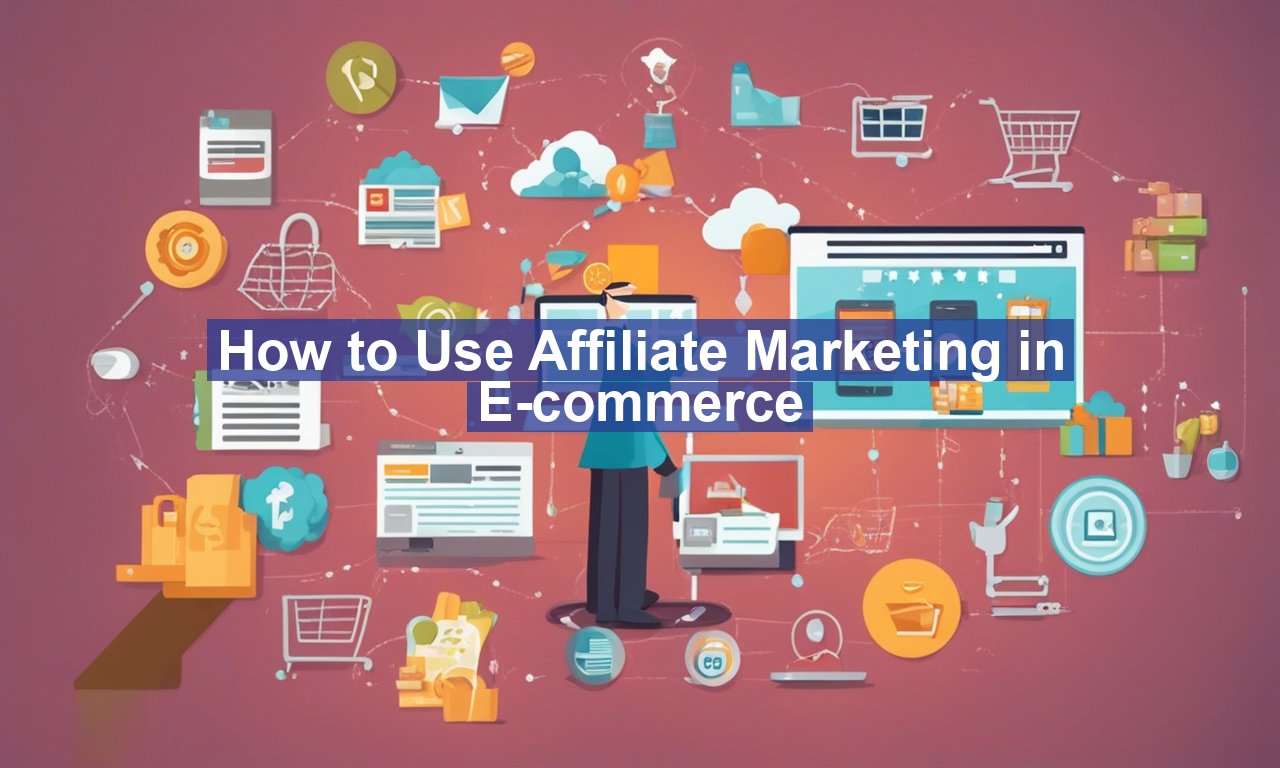How to use Affiliate Marketing in E-commerce Imagine you’re running an online store and looking for new ways to boost your sales and visibility without spending excessively on advertising. What if there was a method where people actively promoted your products for you, all while you only paid them for the sales they helped generate?
Welcome to the world of How to use Affiliate Marketing in E-commerce, a powerful tool that can transform your business’s potential. In this article, we’ll explore how this type of performance-based marketing can maximize your online store’s success, providing strategic tips and answering key questions, so you can confidently dive into the affiliate marketing arena.
Understanding How to Use Affiliate Marketing in E-commerce
Affiliate marketing involves partnering with individuals or other companies (affiliates) who will promote your products or services in exchange for a commission on sales generated through their efforts. It’s a win-win situation: affiliates earn money and gain access to a new audience, while you enjoy increased traffic and sales.
The Benefits of Affiliate Marketing
Let’s break down why affiliate marketing is such a significant tool for e-commerce businesses:
- Cost-effective: Unlike traditional advertising, affiliate marketing is performance-based. You only pay when an actual sale occurs through the affiliate’s efforts.
- Expanded reach: Affiliates have their own audiences, which means your products get exposed to a broader demographic you might not otherwise reach.
- Increased credibility: When reputable affiliates promote your products, it adds another layer of trust and credibility to your brand.
Setting Up Your Affiliate Marketing Program
Choosing the Right Platform
The first step in establishing an affiliate marketing program is selecting the right platform. There are several well-known affiliate marketing networks such as Impact and ShareASale, or you can opt to run a program independently using software like Affise.
Define Your Commission Structure
Deciding the commission rate is crucial. You must strike a balance between motivating affiliates and maintaining profitable margins. Typically, commissions can range anywhere from 5% to 30%, depending on your industry standards and profit margins.
Recruiting and Managing Affiliates
How to Find Affiliates
- Leverage social media: Many influencers or bloggers are willing to promote products they believe in. Look for those who align with your brand values.
- Join niche communities: Online forums, groups, and industry-specialized communities can be goldmines for finding dedicated affiliates.
Effective Management Tips
- Offer tools and resources: Provide your affiliates with banners, product images, and content inspiration to streamline their promotional efforts.
- Maintain communication: Regularly update affiliates with new promotions and gather feedback about your product or service to improve your offerings.
Tracking and Optimizing Performance
To ensure your program is a success, tracking performance is essential. Use analytics tools to monitor traffic, conversion rates, and revenue brought in by affiliates. This data helps to identify top-performing affiliates and those who might need more support. If necessary, adjust your strategies to optimize performance.
Legal Considerations
Disclosures and Compliance
It’s essential to ensure that your affiliate marketing activities comply with local laws and regulations. Affiliates must disclose their partnership, according to guidelines such as the Federal Trade Commission’s (FTC) rules in the United States, which mandate that affiliates must clearly inform their audience of any potential financial incentives they receive. This transparency builds trust and helps maintain your brand’s integrity.
Challenges and How to Overcome Them
Fraud Prevention
Affiliate marketing can sometimes attract fraudulent activities. Set preventive measures such as tracking software that detects unusual patterns and continually monitor for suspicious activity. Establish terms of service that prohibit fraudulent behavior and take immediate action if any affiliates breach these terms.
Competition and Saturation
Depending on your industry, the affiliate marketing landscape may be competitive. Stand out by offering competitive commissions, understanding what your affiliates value, and nurturing strong relationships with them.
Future Proofing Your Program
How to use Affiliate Marketing in E-commerce is always evolving. Stay informed about trends and technological advancements to keep your program efficient and aligned with market needs. Engage with affiliate communities, attend webinars, and revise your strategies based on emerging data and insights.
By following these steps and staying adaptable, affiliate marketing can be a robust and profitable avenue for any e-commerce strategy. The key to success lies in efficient management and continuous optimization of your affiliate network, ensuring it remains beneficial both for your brand and your affiliate partners.


